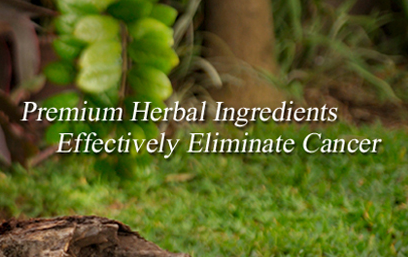Combination of 10 Plant Extracts in Herbal Formula Promising Cancer Fighter


It is estimated that almost 1,600 people will die of cancer every day in the U.S. alone, but there is hope yet. Known throughout China as Tian Xian, an herbal formula of more than 10 plant extracts including licorice and ginseng has been proven to be successful at treating cancer. While clinical results are not yet widely published, there are thousands of ‘testimonials’ on many sites throughout the Internet.
There are preliminary tests which show clear evidence of cell apoptosis utilizing the Tian Xian formula, both in vitro and in vivo. Further testing is still being conducted, though ingredients in this remedy have been used in China for centuries for their medicinal effects.
The formula was developed by a Chinese Professor named Wang Zhen Guo, but was also researched by the Memorial Sloan Kettering Cancer Center, Guo hardly invented the herbs, though, and merely combined them successfully to treat cancer patients.
“TXL inhibited HT-29 xenografted model and showed a strong and dose-dependent inhibitory effect on the proliferation of HT-29 cells. Mitochondrial membrane potential was reduced by TXL at the concentration of 0.5% above. For Western blot analysis, an increase in Baxexpression and a decrease in Bcl-2 expression were observed in TXL-treated cells. TXL treatment increased the protein level of cleaved casepase-3 and caspase-9, and the release of cytochrome c in cytoplasm was up-regulated as well.”
Read: Essiac Tea: A Secret Cancer-Fighting Formula
The full list of herbs in the formula are proprietary and expensive, and can vary from one company to another that sells it, but seem to include (most of which are long-used and well respected Chinese herbs):
- Radix Ginseng (12.5%)
- Radix Astragali (15%)
- Cordyceps (24%)
- Ganoderma (17%)
- Rhizoma Dioscroeae (11%)
- Herba Scutellariae Barbatae (2%)
- Margarita (4%)
- Fructus Lycii (9%) (Goji Berry)
- Fructus Ligustri Lucidi (0.5%)
- Radix Glcyrrhizae (5%)
Four of the herbs on the list have shown to be very effective cancer fighters:
- 1. Cordyceps sinensis (caterpillar mushroom) — One of the better known Chinese herbs, the caterpillar mushroom grows above 10,000 feet in the highlands of China, Tibet, and Nepal. This herb has a broad range of biological effects on the liver, kidneys, heart, and immune system. A “Cordyceps sinensis cancer” elicits more than 100 PubMed listings.
- 2. Ganoderma (Reishi mushroom) — Used for over 2,000 years in Chinese medicine, the Reishi mushroom is respectfully called the “Mushroom of Immortality.” There are hundreds of PubMed entries on Reishi mushroom’s positive impact on cancer cell death. One states that Ganoderma is good for “increasing the beneficial cytokines IL-2, IL-6 and interferon-gamma, and significantly decreasing pro-inflammatory ones. Natural killer (NK) cell activity also increased 8%. The authors concluded that ganoderma enhanced immune function in late-stage cancer patients.”
- 3. Astragalus — This herb has been used in traditional Chinese medicine for millennia, and is an incredible immune booster. Astragalus is an adaptogen, meaning it helps your body adjust to physical and emotional stressors. It is also an anti-bacterial and an anti-inflammatory.
- 4. Fructus Lycii – Also known as the wolf berry or goji berry, Fructus Lycii is a staple to many Asian medicinal techniques. It grows primarily in the Himalayan regions of Tibet, and Mongolia, and has spread throughout China. There is a possibility that the super food has anti-estrogenic qualities and that its high level of plant antioxidants scour the body of free radicals.
There is also disclosure at many sites selling the formula about a healing crisis that can occur in some people who take it with side effects including:
- Constipation
- Diarrhea, which may contain blood
- Stomach pain and wind
- Feeling and being sick
- Dizziness
- Racing pulse and raised blood pressure
- Loss of appetite
- Aches and pains
- Rashes
- Darkened skin if you have liver cancer
It is also not recommended for those currently going through a conventional round of chemotherapy as cancer treatment since:
“…tian xian alters the strength of interaction between the human PXR protein and transcriptional cofactor proteins. A novel line of humanized PXR mice are described and used here to show that tian xian increases expression of Cyp3a11 in primary cultures of rodent hepatocytes. Tian xian also induces expression of CYP3A4 in primary cultures of human hepatocytes.”
PXR regulates the expression of genes involved in the metabolism of xenobiotic compounds, i.e. foreign compounds like cancerous cells, but also drugs, pesticides, or carcinogens.
The medical community is still hesitant to give Tian Xian a green flag, but users seem convinced that it works.

Christina, we enjoy your articles, by any chance are you a friend of Rolf W. in Honolulu?
Thank you so much for this great article. Very informative. I’m in the midst of searching extensive research on cordyceps/medicinal mushrooms. God bless 😀